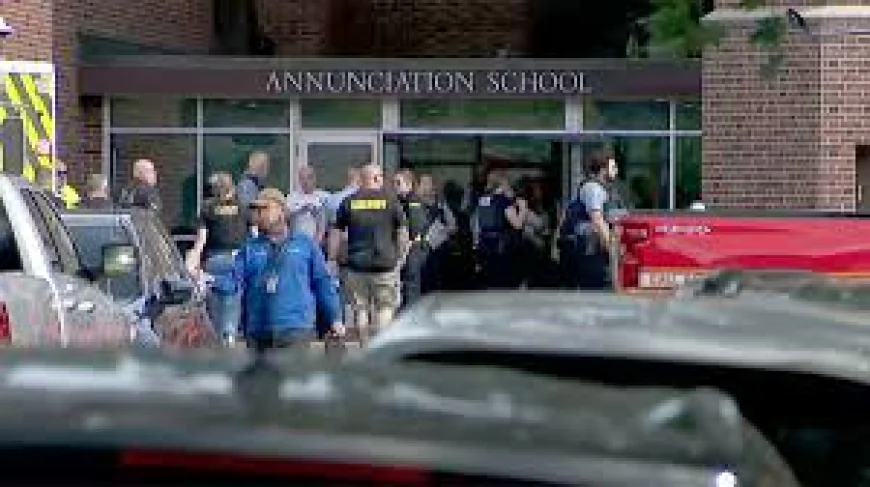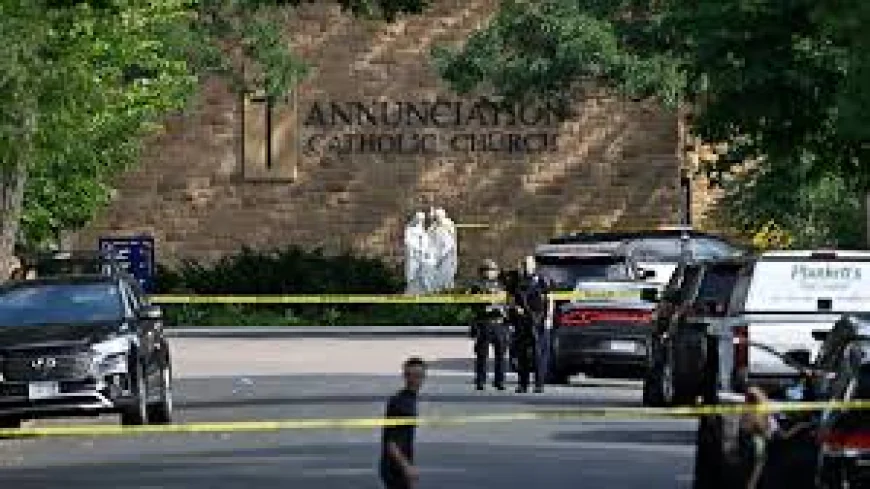Two Children Killed, 17 Wounded in Minneapolis Catholic School Shooting
On August 27, 2025, a mass shooting at Annunciation Catholic Church and School in Minneapolis claimed the lives of two children and injured 17 others during a morning Mass. The assailant, 23-year-old Robin Westman, died by suicide after carrying out what the FBI has deemed an anti-Catholic hate crime and act of domestic terrorism. Investigators discovered extremist writings, pointing to ideological hatred as the motive. The attack has shaken both the local and national community, with leaders calling for prayers, unity, and action. More broadly, it has reignited urgent debates about gun violence in the United States, highlighting the risks faced by schools, churches, and public spaces in an era of rising extremism and easy access to firearms.
Tragedy at Annunciation Catholic School: FBI Probes Hate Crime in Minneapolis Shooting
Minneapolis, August 27, 2025 — The calm of a morning Mass at Annunciation Catholic Church and School was shattered yesterday when a gunman opened fire, killing two children and injuring 17 others in what federal authorities now describe as both a hate crime targeting Catholics and an act of domestic terrorism.
The Shooting
The attack unfolded just before 8:30 a.m., during an all-school Mass marking the start of the new academic year. Witnesses say the assailant, 23-year-old Robin Westman, opened fire through the stained-glass windows of the church with multiple firearms, striking children in the pews and elderly parishioners.
Among the victims were an 8-year-old girl and a 10-year-old boy, both killed instantly. Fourteen other children, aged between six and fifteen, were wounded, along with three elderly parishioners. Many survivors remain hospitalized, though doctors report most are expected to recover.
The shooter died by suicide in the church parking lot. Minneapolis Police later revealed that several church exits had been barricaded beforehand, suggesting meticulous planning.
Hate Crime and Domestic Terrorism
The FBI has taken over the investigation, declaring the incident a hate crime against Catholics. Investigators uncovered writings and videos by Westman that expressed admiration for past mass shooters and contained anti-Catholic, antisemitic, and racist rhetoric. Messages were also found scrawled on firearms and ammunition magazines.
FBI Director Kash Patel described the attack as “a deliberate act of domestic terrorism against a religious community.”
Shock and Grief
The massacre has devastated Minneapolis. Vigils were held across the city last night, with hundreds gathering for prayers outside Annunciation. Archbishop Bernard Hebda led a rosary service, while Pope Leo XIV expressed “deep sorrow” and called for unity in rejecting hatred.
President Trump and Minnesota Governor Tim Walz issued statements of mourning, with flags ordered to fly at half-staff through the end of August.
Gun Violence and Its Implications
Beyond the immediate grief, the tragedy has reignited debate over America’s ongoing gun violence crisis. This was the fourth shooting in Minneapolis within 24 hours, underscoring the pervasiveness of firearm-related violence in communities across the nation.
The fact that children were targeted inside a place of worship highlights a chilling trend: schools, churches, and other community spaces are increasingly vulnerable. Critics argue that current gun laws fail to prevent individuals with extremist views from stockpiling weapons. Advocates of reform say this shooting illustrates the urgent need for tighter background checks, restrictions on assault-style weapons, and stronger monitoring of online extremist content.
Religious leaders warn that the attack could have a chilling effect on faith communities nationwide. “When a school Mass becomes a battlefield, the very heart of our community is wounded,” said one Minneapolis pastor.
At the same time, security experts caution that hate crimes combined with easy access to firearms create a dangerous cycle that fuels fear, division, and further radicalization.
A Community in Mourning
As the investigation continues, the Minneapolis community finds itself balancing heartbreak with resilience. Families of victims have asked for privacy, while neighbors and strangers alike have left flowers, notes, and candles outside the school.
What remains clear is that this tragedy will not only be remembered as an isolated act of hate but as part of the broader American struggle with gun violence, extremism, and the safety of its most sacred spaces.
Source:
BBC News/ The Guardian




